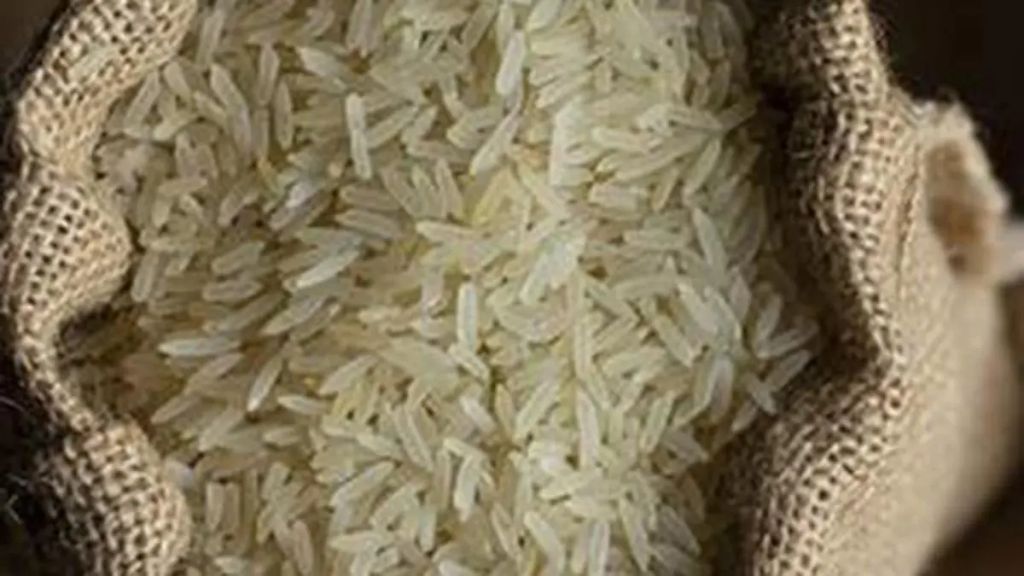Tags
IRRI scientists identify rice varieties with anti-cancer properties
Scientists now in the hot pursuit of genes that are responsible for anti-cancer properties.
By KV Kurmanath

Here’s a breakthrough that rice lovers would want to hear. Scientists at the Philippines-based International Rice Research Institute (IRRI) have identified a few rice varieties with anti-oxidant and anti-cancer properties.
The research outcome has been published in the scientific journal Food Hydrocolloids and Health. This could be a significant development, particularly in Asia, where colorectal cancer incidence is increasing in countries such as India and China. The scientists sifted through 1.32 lakh rice accessions collected from across the world, and zeroed in on six accessions of pigmented rice with potent antioxidant and anti-cancer properties.
The findings offer promising new avenues for developing functional foods and supplements to improve human health. Dr Nese Sreenivasulu, Principal Scientist and the Head of Consumer-driven Grain Quality and Nutrition Center at the institute, said the team initially selected 800 pigmented (coloured) rice varieties and conducted in-depth metabolite profiling and anti-oxidant properties, and screened for in vitro testing of extracts made from the six rice lines on two types of cell lines: colorectal cancer cell lines and breaster cancer cells.
“Only about six lines out of the 800 screened exhibited extremely high levels of antioxidant properties, comparable to those found in superfoods like blueberries and chia seeds. When these superior lines were tested on cancer cell lines, they also demonstrated very high levels of anti-cancerous properties,” Sreenivasulu, corresponding author of the paper, told businessline, over a virtual call.
“A particularly striking finding was that these rice extracts exhibited cytotoxicity property only in cancer cells, without affecting healthier cells, a key difference compared to many chemotherapeutic drugs, which often cause significant side effects by impacting healthy cells as well. This suggests a potentially safer profile for these natural compounds,” he said.
In vitro bioavailability tests were also conducted on the multi-nutrient mix supplement developed from the rice bran extract. It showed that most of the antioxidant and anti-cancerous property biomolecules were absorbed in the gastric phase. He said the next crucial step is to conduct efficacy trials to generate evidence directly on living models, such as mouse models.
Following successful trials on models like mice suffering from colorectal cancer, the plan involves collaborating with the biomedical community to conduct further efficacy trials, eventually aiming to establish evidence of benefits directly on humans. When cooked directly, these superior rice varieties retain about 70 per cent of their anti-cancerous or antioxidant properties in the superior accessions of whole grain rice.
Supplement
The team collected the bran from the identified rice using a safe extraction method, such as using ethanol, to obtain these vital metabolites. This extract is then stabilised through microencapsulation to create a multi-nutrient mix supplement.
“This supplement is highly soluble in water. In vitro tests showed that just 7.5 μg/mL of this supplement had high anti-cancerous properties on cell lines, the anti-cancer effect is similar to other chemotherapeutic drugs,” he said.
About 300g of bran will produce 1 kg of the microencapsulated product. The ketan hitam variable purple rice originated in Indonesia; Balatino variable purple rice and Kintuman red rice originated from Philippines. IRRI scientists are now working to identify the genes responsible for the anti-cancerous property in these landraces. This prior knowledge would help to bring anti-cancerous traits into the high yielding variety.
https://www.thehindubusinessline.com/economy/agri-business/irri-scientists-identify-rice-varieties-with-anti-cancer-properties/article69645097.ecePublished Date: June 1, 2025






